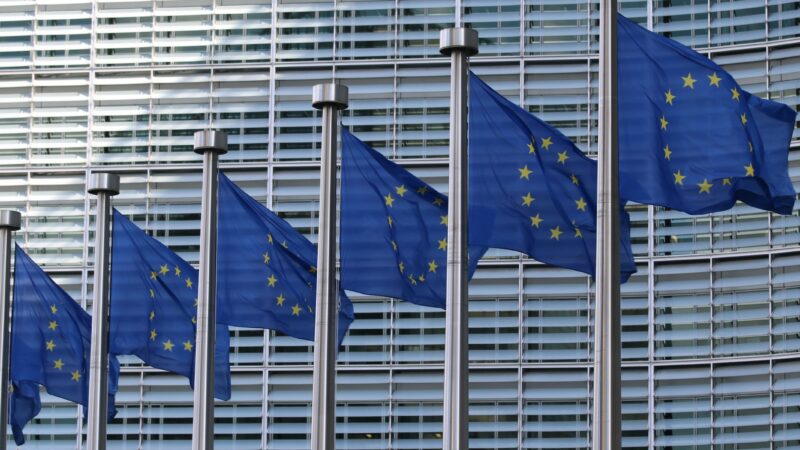Stop Pigeon Hate
Why is the pigeon so hated? Is it due to his availability as a target? After all, he is a common sight in our towns and cities, so common he can seem like an omnipresent nuisance.
Maybe it’s his appearance? Admittedly, he is less stunning than other birds; his generally grey countenance is far less pleasing than the radiant scheme of a kingfisher or the sparkled wings of a starling.
Perhaps it’s his stature? Small and stout, he’s certainly an easier target than any bird of prey, lacking the brawn of an eagle or the sleekness of a falcon.
Whatever the case, the pigeon does not have a good reputation. Recently, he has faced criticism for a variety of reasons, from trying to liberate mankind from its self-imposed enslavement to mass media, to taking over a house after the landlord made the avoidable mistake of leaving the windows open for four weeks.
In my view, the public’s attitude towards pigeons can be best summarised with a well-known, albeit not entirely original, comment from Ken Livingstone, former Mayor of London: “pigeons are rats with wings.”
Now this is simply not true. Given the opportunity, the pigeon shows himself to be a considerate and upstanding member of our society, which is certainly more than can be said for many of its human participants.
Naturally, some nuance is required. After all, there are many different types of pigeon and there is no strict distinction between a pigeon and a dove, the latter of which has marginally better connotations, such as being a symbol of peace and salvation.
The largest and most common pigeon in the UK is the woodpigeon. Shy and tame, they are mostly grey with white patches on its neck and wings. Although primarily found in rural areas, they can also be found in more urban areas.
Due to their sizeable presence, you’ve definitely heard their call, especially if you live in suburban England. The soundtrack to a gloomy Sunday evening, their gentle cooing stirs a sense of melancholy in the local children, reminding them they have got school tomorrow.
Secondly, there is the collared dove, which gets its name from the black mark which stretches around the back of its neck. Pale brown, with reddish eyes and feet, unless there’s a buffet on offer, they’re almost exclusively seen on their own or in pairs.
Indeed, the collared dove’s unwavering monogamy is arguably more defining than the mark to which it owes its name. Wrapping only half-way around it’s neck, hence it’s comparison to a collar, when united with another collared dove, it becomes a full matrimonial ring. How’s that for nature’s poetry?
Then, there are rock doves. Also known as the feral pigeon, they are ancestors of domesticated pigeon. Coming in a diverse range of colours, from dark blue to black, from pale grey to white, from a rustic brownish orange to a brick-red.
These are the urban sprawl of pigeons. Whilst all creatures are innocent until proven guilty, should you find a stray blob of poop on an inner-city pavement, he’s going to be your prime suspect. When people speak of rats with wings, they think of the cooing greaseball known as the rock dove.
Similar to rock doves, stock doves have darker feathers, especially on their rump and wings, a distinct green neck patch, and a pink chest. Concentrated in the English midlands and southwest, becoming rarer in northern Scotland and Ireland, the UK is home to over half their European population.
However, unlike the rock dove, the stock dove is less likely to be seen in urban and suburban areas, preferring farm life to big city living. This is because he is generally shyer and more averse to humans than his cosmopolitan cousin.
Finally, the turtledove is the runt of the flock, being only slightly bigger than a blackbird. Arriving in the UK in spring and leaving for Africa in winter, its feathers are a distinctive mottled mix of a black and golden brown, with a white-rimmed black tail.
Unlike his relatives, the turtledove is a picky eater, choosing to indulge on cereal grains, oilseed rape, and chickweed. Unfortunately, due to his refined tastes, the turtledove has been in decline since the mid-90s, largely due to a lack of his favourite delicacies.
Given this, we can see that the pigeon is not merely a rat with wings. All at once, the pigeon is a sensible everyman, a young lover, a boisterous yuppie, a country bumpkin, and a persecuted aristocrat. They are diverse and endearing creatures with varying personalities and habits, reputations and interests, but much of the public want to exterminate him over a few measly droppings.
Every bird defecates, but the pigeon is solely hated for doing so. It’s for this reason I militantly oppose anti-pigeon architecture. Every public building in Britain is glazed with spikes, ruining their appearance in the name of protecting it.
On several occasions, I have sat in York station, waiting for my train home, with a quiet emotional investment in pigeons looking for somewhere to perch, watching them steer clear of the spikes, mentally cursing the communist station master who had them installed.
I’d prefer railway staff clean up bird droppings than behave like members of the Cheka, indulging their pathetic power fantasies by shouting at people for standing less than a country mile behind the yellow line. Mate, mate, mate. Health and Safety, yeah?
Following the riots of Oxford Street, which included looting and violent clashes with the police, one left-wing academic suggested the chaos could’ve been avoided if the rioters had access to public swimming pools.
As most people realised at the time, this suggestion is ridiculous on a number of levels. For one, unlike animals, humans have an innate tendency towards evil. It is easy to imagine machete brawls between illiterate migrants and fake bomb threats by TikTok pranksters overrunning such places.
However, it raises an important, if only loosely related question: why are there so few public birdbaths?
Despite his reputation as a feathered hobo, the pigeon is quite a cleanly creature, taking every chance he gets to fastidiously groom himself.
We have a birdbath in our garden, and we have many regulars, our most well-known being an especially rotund and fluffy woodpigeon, whom my mother affectionately refers to as Fat Wilbur.
I do not see this ‘winged rat’ Livingstone speaks of. Wilbur makes his stop, does what he needs to do, takes in the atmosphere, before moving on his way, not wanting to overstay his welcome. Should other pigeons accompany him, he makes room, as they do for him, and all is well.
The idea that such tranquillity could emerge in a society as presently low trust as ours is simply absurd. Of course, being a pigeon, it’s unlikely he does this for any pretentious, perception-based reason. Indeed, his fixation must be rooted purely in the value of cleanliness itself!
However, contrary to pervasive anti-pigeon sentiment, the pigeon is not only a cleanly creature, but a clever one too.
It can be hard to accept that pigeons, creatures known for flying into windows and pecking at cigarette butts, can distinguish between Picasso and Monet, but they can. In fact, according to the scientific research we have, pigeons are amongst the most intelligent birds in the world, showing a variety of relatively complex cognitive abilities.
Of course, whilst it is undeniable that humans are much smarter than pigeons, we do not use our superior faculties particularly well.
Whilst humanity may be threatened by the whims of idiots or a lack of imagination, hindering our ability to innovate and develop, our kind is similarly threatened by overthinking.
As a result, we deny ourselves the ability to be authentic, we shun risks in the name of avoiding embarrassment and pain when such risks could just as easily bring us laughter and joy. In the words of Paglia: “consciousness has made cowards of us all.”
As such, we should not be surprised when pigeons manage to be funnier than us. Just by being what they are, pigeons are funnier than basically every living comedian. Every wannabe BrewDog-sipping funny man, with his safe-edgy humour and hashed-out irony, fails to be more amusing than a random birb going about its business.
Walking around in circles, sporadically pecking the pavement, stopping occasionally to exhibit his dumbfounded ‘the lights are on, but nobody’s home’ expression, bobbing its head like its listening to a really good song, it is a grave fault in our being that a character as innocently absurd as this is considered less amusing than James Acaster.
Even the mere idea of a pigeon is funnier than most human attempts at humour. Go ahead, in your mind, visualise a pigeon (don’t worry, the cops can’t do anything… yet). You see that? Now that’s comedy. If you deny this, you Just Don’t Get It. Not much I can do about that.
Looking at these odd creatures, has nobody once thought: what are they up to? What’s their game? Why did they peck there and not there? Why did he take flight for seemingly no reason? Is there some secret pigeon meeting he needs to get to? What’s his schedule? Does he have time for an interview?
Yet, despite his apparent gormlessness, it is clear pigeons are far more sensitive than the average human.
If you’ve ever commuted anywhere via public transport, you’re no doubt familiar with the hectic nature of it all. From the loud noises to the chaotic stampedes, from the excruciating delays to the dodginess of certain folk, commuting isn’t exactly what most people would call an enjoyable experience.
Of course, whilst we might find certain aspects of commuting more annoying than others, we all agree on one thing: the worst part of commuting is other people.
Compare this to the pigeon, who shows consideration for personal space, does not play loud music, doesn’t try to con you out of your money, and generally minds its own business, preferring to get out of your way, rather than get into it.
If what Sartre says is true, that hell is other people, perhaps heaven is to be in the company of animals. More to the point, who is better company on a long commute than a pigeon?
Undoubtedly, the pigeon is not a faultless creature, and the shortcomings of us and other beings cannot excuse or undo this fact. That said, any fault which can be found with the pigeon can easily be remedied by human custodianship. We must spare him from the misguided disdain of busy adults and the clumsy tyranny of misbehaved children.
Pigeons are not flying rats, nor are they government spies. They are our friends and we should treat them as such. Stop Pigeon Hate!













The Betrayal of Lampedusa
“At midnight tonight her borders will be opened. Already, for the last few days, they’ve been practically unguarded. And I’m sitting here now, slowly repeating, over and over, these melancholy words of an old prince Bibesco, trying to drum them into my head: The fall of Constantinople is a personal misfortune that happened to all of us only last week.” – Jean Raspail, Camp of the Saints, Epilogue (1973).
Within the last 48 hours, the Mediterranean island of Lampedusa, once host to 6000 Italians, has been overrun by upwards of 18,000 African migrants, the vast majority of whom are military-age men. Some of them have been shipped to Germany, but they continue to vastly outnumber the native population.
Since their arrival, the migrants have taken to fighting amongst themselves, struggling over the island’s waning and already limited resources, with local officials struggling to maintain control. As every astute observer of politics and history will know, violence within the in-group is typically remedied by violence against an out-group, making the possibility of further and more severe chaos, far from a hamstrung hypothetical, a very real threat at this time.
In no uncertain terms, Lampedusa is experiencing an invasion, one which has been instigated without any formal declaration of war between nations yet will afflict the island in much the same way.
Given the nature of this event, I am reminded of Jean Raspail’s The Camp of The Saints, the final words of which provide the opening to this article. The author grimaces as the last outpost of European civilisation, Switzerland, is forced to capitulate to the ‘rules-based international order’, having been outcast as a rogue state for closing its borders amid a continent-wide migrant invasion.
Lampedusa is symbolic of the transformation which has occurred in towns and cities across all of Europe. From England to Italy, from Spain to Poland, from France to Germany, from Sweden to Greece, mass immigration from Africa and the Middle East, as well as Eastern Europe to a lesser and more regionalised extent, has radically transformed the essence of many European settlements, altering them in such a way not seen since Antiquity.
In England, in this year alone, we’ve become well-acquainted with the dire consequences of mass immigration. From rising tensions between the Blacks and South Asians in Peckham to ethnoreligious violence between Indians and Pakistanis in Leicester, divisions which the established order has tried to dilute by promoting anti-white rhetoric in the name of intersectional social justice.
Amid this litany of troubling events, it is easy to forget our European friends face many of the same problems, and that such problems are not an idiosyncratic quirk of the British state.
Unfortunately, similar to such cases, many will not feel sympathy for the people of Lampedusa. Some of native descent in Europe will remark on the inevitability of this ordeal, as if it was apolitical in nature or without a realistic alternative. Erstwhile, some of foreign descent will wryly remark that such an invasion is deserved; if not ‘deserved’, then a change for the better, and if not a change for the better, then negligible happenstance unworthy of press coverage.
Our leaders have known about Lampedusa’s troubles for no less than 20 years. However, instead of preventing such activity, they have spent decades trying to transform illegal migration to a standard bureaucratic procedure. If you can’t beat them, join them!
Since the early 2000s, Lampedusa has been a prime transit point for African and Middle Eastern migrants seeking to enter Europe. Migrants have been paying smugglers to ship them to the island, from which they are transported to the Italian mainland for processing.
Not that any of the processing matters of course. Those without the right to stay, even under Europe’s distinctly liberal asylum laws, continue to live on the mainland, as their deportation orders are barely enforced.
When the Italian government struck a deal with the Libyans in 2004, obliging the latter to accept African immigrants deported from Italian territories, the European Parliament condemned the agreement, and the ensuing repatriations, as unconscionable, unworkable, and quite possibly, illegal.
In 2009, roughly 2000 migrants overwhelmed the island’s asylum facilities. Only capable of accommodating 850 people, the migrants started to riot. How dare the people of Lampedusa be so unprepared for their completely unscheduled, unsustainable arrival!
Catching word of the riot, the United Nations High Commissioner for Refugees (UNHCR) quickly issued a condemnation; not of the traffickers, not of the authorities, or the migrants, but of the Italian people.
In May 2011, roughly 35,000 migrants had landed on the island since the start of the year. By August, the number had increased to roughly 50,000, with most of the arrivals being men in their 20s and 30s. Compared to the recent arrivals, it is clear things have not changed in this respect either.
Following the 2013 Lampedusa Disaster, in which a boat carrying over 500 migrants, mostly from Eritrea and Somalia, sank off the coast, resulting in at least 300 deaths, Pope Francis prayed not for the natives, but those complicit in a criminal operation to illegally enter their home.
In 2015, from January to April, over 1500 migrants died on the route from Libya to Lampedusa, making it the deadliest migrant route in the world, and just as was the case two years prior, efforts went towards making the trafficking network more legal, more safe, and more efficient, rather than ending the practice altogether.
Consequently, boats needn’t travel far off the coast of Africa to be brought to the mainland by the EU or the UN. The prevailing political mentality is that migrant deaths in the Mediterranean are best averted when the EU, the UN, or some other official organisation does the traffickers’ dirty work for them, showing little-to-no consideration for the domestic consequences of their precious so-called ‘humanitarianism’.
In the case of Lampedusa, the idea that an island of one community should become an island of two, lacking a tangible sense of common belonging, situates both groups into a state of war, and such a war is unjust, both in the sense it is unnecessary, and in the course which it is likely to follow, assuming it is not dealt with in a fitting manner.
From the Pelagies to the Aegeans, every island in the Mediterranean is the first in a trail of dominoes, each of increasing size, intersecting at every European capital, with every tremor created from their fall being more forceful than the last.
I do not want what has happened in Lampedusa to happen tomorrow, the day after, next week, next month, next year, or ever after. It is the height of political and moral arrogance to plunge an entire community of people, overnight no less, into such existential uncertainty.
To subject anyone, native or foreigner, to such sordid and egregious indignity is to betray every metric of justice, and anything short of mass deportations, the immediate defunding of complicit NGOs, and the destruction of every treasonous convention and law, will amount to nothing but betrayal, a betrayal of Lampedusa and all the peoples of Europe.
Photo Credit.